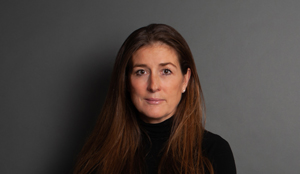English Supreme Court narrows the scope of reflective loss - Sevilleja v Marex Financial Ltd [2020] UKSC 31
In a landmark decision, the Supreme Court confirmed that the principle of reflective loss restricted the ability of shareholders to claim damages in respect of a reduction in the value of their shares due to loss suffered to company, but that this principle did not extend to claims made by individuals in other capacities, such as creditors.
Sevilleja v Marex Financial Ltd [2020] UKSC 31
The law of reflective loss
The law relating to the principle of "no reflective loss" is one which has developed significantly through case law and it has traditionally prevented shareholders from bringing claims for the diminution in share value where the loss merely reflects the loss suffered by the company. This was found to be the case, even if a wrong had been committed in part against the shareholder, and even if no proceedings had been brought by the company. (Prudential Assurance Co Ltd v Newman Industries Ltd (No 2) [1982] Ch 204).
Over time, the scope of the rule in Prudential has been widened to include claims brought by a shareholder in their capacity as creditor or employee of the company, and in the current case in respect of claims brought solely as creditor of the company. An exception to the principle was also found where the Court perceived that a wrongdoer's act had caused the company's impecuniosity, which prevented the company from bringing an action.
Facts of the case
Marex, a creditor of 2 BVI Companies controlled by the Respondent appealed to the Supreme Court. Marex had been awarded damages in respect of earlier English Commercial Court proceedings. Following judgment in Marex's favour, the Respondent, Mr Sevilleja allegedly dissipated the companies of money, and liquidated the companies to the effect that the judgment was unable to be paid.
Marex claimed damages against Mr Sevilleja personally for violating the company's rights rights and for intentionally causing loss to Marex by unlawful means. On appeal, the Court of Appeal found that that 90% of Marex's claim as a creditor of the company was restricted by the doctrine of reflective loss and struck it out.
Supreme Court decision
The key issue the Supreme Court had to decide was whether the reflective loss principle applied in the case of claims by company creditors and not solely to claims by shareholders.
The Supreme Court lamented the expansion of the reflective loss principle, which they noted had "unwelcome and unjustifiable effects on the law". The Court reaffirmed the approach in Prudential, but departed from judgments in later cases which expanded the principle, on the basis that these were wrongly decided. It drew distinction between "claims brought by a shareholder in relation to loss which he or she has suffered in the capacity of shareholder, such as a diminution in share value or in distributions, and claims which a shareholder or anyone else may bring in any other capacity, for example as a creditor or employee of the company."
The former is a claim for reflective loss as it concerns the loss sustained by a company "even though that loss may be reflected in a fall in share value, the claim belongs to the company and not the shareholder" whereas the principle of reflective loss did not apply to claims made in other capacities, such as by a creditor or an employee. As a result, Marex's claim was not limited by the reflective loss principle and it was permitted to pursue the entirety of its claim. The Court also held that there was no exception to the principle where the defendant had caused the company's impecuniosity.
What does this decision mean?
This judgment has narrowed the scope of reflective loss carve out to shareholder claims in respect of a fall in the value of shares (or distributions) where the loss to the company is caused by a wrong by the defendant. Claims made by individuals acting in other capacities will now be considered outside the scope of the principle. This is particularly important in the current climate where many companies are facing financial pressures, as the decision reinstates creditors' ability to bring claims against wrongdoers whose actions have diminished a company's financial position.
For further disputes related know-how Login to Disputes+, Bird & Bird's dedicated DR know-how portal.



